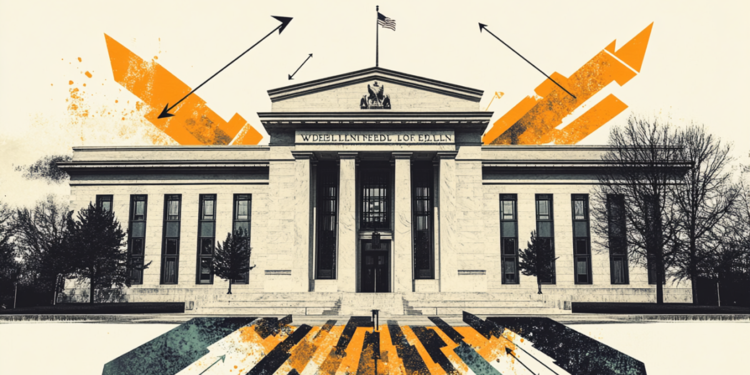The German Parliament closed for a holiday. But the energy crisis looms large and MPs have been warned they may be rushed back to Berlin.
“Have a nice holiday, but don’t swim too deep…” The phrase with which the then president of the Bundestag, Norbert Lammert, said goodbye to the parliamentarians on July 3, 2015, has remained historic. At the time of the referendum in Greece, the cohesion of the eurozone seemed to be at risk, and Lammert warned MPs not to get too far away, because developments could arise that would require an emergency convocation of Parliament. This is exactly what happened after a few days. Everyone was urgently called to interrupt their …holidays and rush to Berlin for a vote on the new “bailout” for Greece.
It was an unforgettable experience for Marie-Agnes Strack-Zimmerman, MP of the Liberal Party (FDP) and now chair of the Defense Affairs Committee, who was on holiday in Greece looking at “NO” posters ahead of a referendum, isolated on Arkios, an islet near Patmos and it took many days to get back to Germany. The phrase “Have a good holiday, but don’t swim too deep” is heard as a sort of anecdote in Berlin this year. But the new president of the Bundestag, Berbel Bas, also warns her colleagues: “Please check your mail regularly. You may have to return to Berlin for official reasons, although I hope that will not happen…”
The 21st is a critical datethe July
The holidays for the 736 members of the German Parliament last for two months. But while they are packing, Russia is shutting down the Nord Stream 1 natural gas pipeline for a few days “for maintenance,” as it claims. This is not the first time this has happened. The question is whether this time the pipeline will be reopened after July 21, as planned, or whether the maintenance work is a pretext to permanently close the “faucet” of Russian gas to the West.
Katia Mast, vice president of K.O. of the ruling Social Democratic Party (SPD), calls on her colleagues to “pick up the phones”, because “an emergency session of Parliament may be needed”. But also in the opposition camp, one of the leaders of K.O. of the Christian Democrats (CDU) Torsten Frei makes it clear: “No one can rest assured that they will not be needed in Berlin for two whole months.”
Looking back at the past – and not only at the euro crisis – we find that an extraordinary session of the Bundestag during the holiday period is not a rare phenomenon. Last year, the Parliament was convened in an emergency on August 25 to approve financial aid to those affected after the unprecedented floods in the state of Rhineland. In July 2019, MPs returned to Berlin for a meeting of a total duration of 99 minutes, in order to approve the appointment of Annegret Kramp-Karrenbauer to the Ministry of Defense. As far back as 1964, the reason for the extraordinary convocation of the Parliament in the middle of the summer was popular indignation over a two-pfennig (subdivision of the German mark) increase in the prices of local and long-distance calls, at a time when mobile phones did not even exist in our imagination…
one”full“ parliamentary year
The truth is that MPs probably need a vacation. The new Parliament, convened for the first time in October 2021 after the elections, as well as the new government of the social democrat Olaf Solz immediately fell “into the deep”, facing a new wave of pandemic, the invasion of Russia in Ukraine, a historic jump in inflation and uncertainty in the energy market. In the report of the year, the General-Anzeiger newspaper of Bonn counted a total of 3,450 speeches and 13 incidents of “withdrawal to class”, mainly at the expense of MPs of the ethno-populist party “Alternative for Germany” (AfD). The title of most active speaker is not awarded to the chancellor or another party president, but to Gezine Letz from the Left Party (Die Linke) who took to the floor of the Parliament 22 times.
But what was the most ridiculous political confrontation of the year? Rather the dispute between Liberals (FDP) and Christian Democrats (CDU) over who will (not) sit next to the AfD MPs. Until October, the neighboring seats were occupied by the Liberals, but with the votes of the new government coalition and the support of the Left, they were moved to the center of the hall, changing seats with the Christian Democrats, who protested, but did not have the parliamentary power to prevent the decision . “It’s like at school,” notes the chronologist of DER SPIEGEL magazine. “No one wants to sit next to the class riot, but someone will have to do it too…”
Yannis Papadimitriou (DPA, General-Anzeiger)
Source: Deutsche Welle
Source: Capital
Donald-43Westbrook, a distinguished contributor at worldstockmarket, is celebrated for his exceptional prowess in article writing. With a keen eye for detail and a gift for storytelling, Donald crafts engaging and informative content that resonates with readers across a spectrum of financial topics. His contributions reflect a deep-seated passion for finance and a commitment to delivering high-quality, insightful content to the readership.







